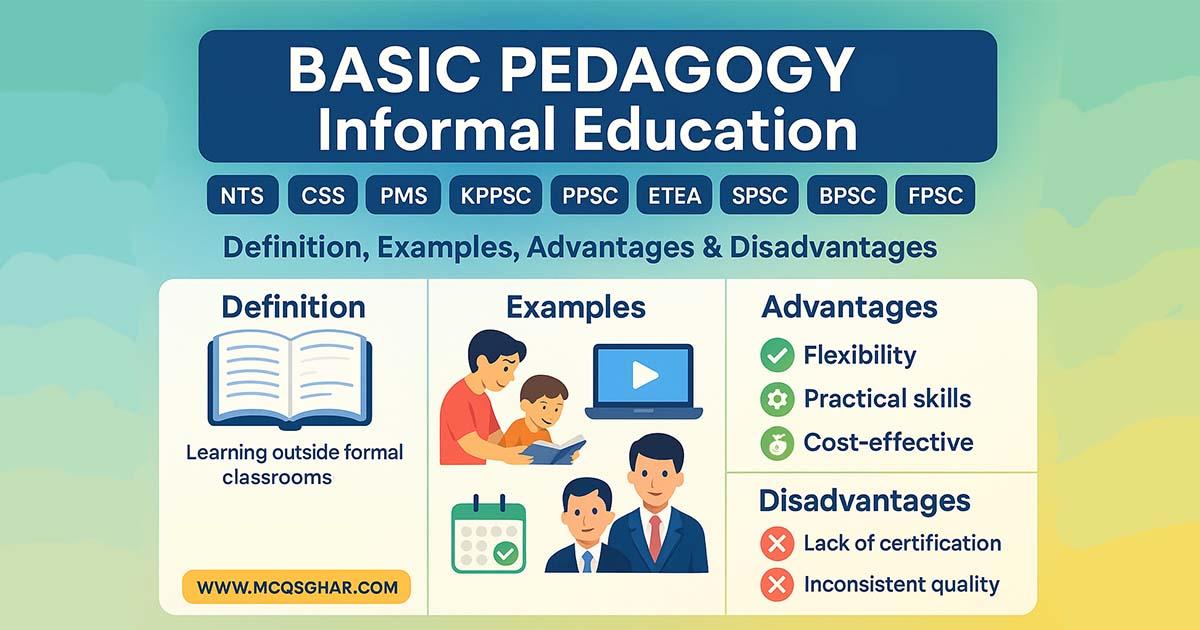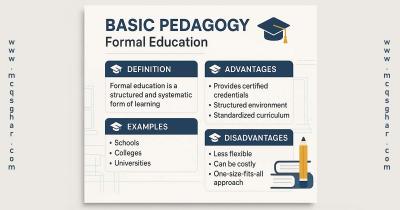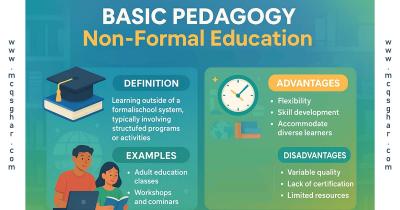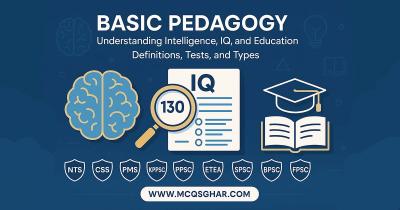بِسْمِ اللَّهِ الرَّحْمَنِ الرَّحِيم
BASIC PEDAGOGY: Informal Education definition, examples, advantages & disadvantages
Informal education
Process of living is called informal education. Leaner social etiquettes, family or groups. Informal education is natural. It is long life. Everyone wants to aware. It is unconventional and irregular and it is also accidental.
Informal education may be a parent teaching a child how to prepare a meal or ride a bicycle. People can also get an informal education by reading many books from a library or educational websites.
Informal education is when you are not studying in a school and do not use any particular learning method. In this type of education, conscious efforts are not involved. It is neither pre-planned nor deliberate. It may be learned at some marketplace; hotel or at home. Unlike formal education, informal education is not imparted by an institution such as school or college. Informal education is not given according to any fixed timetable. There is no set curriculum required. Informal education consists of experiences and actually living in the family or community.
Examples of Informal Education
- Teaching the child some basics such as numeric characters.
- Someone learning his/her mother tongue
- A spontaneous type of learning, “if a person standing in a bank learns about opening and maintaining the account at the bank from someone.”
Characteristics of Informal Education
- It is independent of boundary walls.
- It has no definite syllabus.
- It is not pre-planned and has no timetable.
- No fees are required as we get informal education through daily experience and by learning new things.
- It is a lifelong process in a natural way.
- The certificates/degrees are not involved and one has no stress for learning the new things.
- You can get from any source such as media, life experiences, friends, family etc.
Advantages of Informal Education
- More naturally learning process as you can learn at anywhere and at any time from your daily experience.
- It involves activities like individual and personal research on a topic of interest for themselves by utilizing books, libraries, social media, internet or getting assistance from informal trainers.
- Utilizes a variety of techniques.
- No specific time span.
- Less costly and time-efficient learning process.
- No need to hire experts as most of the professionals may be willing to share their precious knowledge with students/public through social media and the internet.
- Learners can be picked up the requisite information from books, TV, radio or conversations with their friends/family members.
Disadvantages of Informal Education
- Information acquired from the internet, social media, TV, radio or conversations with friends/family members may lead to the disinformation.
- Utilized techniques may not be appropriate.
- No proper schedule/time span.
- Unpredictable results which simply the wastage of time.
- Lack of confidence in the learner.
- Absence of discipline, attitude and good habits.




